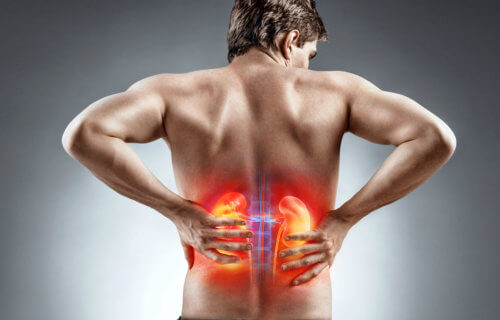ST. LOUIS, Mo. — Kidney problems could become yet another long COVID symptom patients experience weeks after their infection. New research finds people with long COVID have an increased risk of developing kidney damage and kidney failure.
The National Kidney Foundation estimates that 90 percent of people with dysfunctional kidneys aren’t aware of it. Kidney disease is one of America’s leading causes of death and affects 37 million people in the country.
“Our findings emphasize the critical importance of paying attention to kidney function and disease in caring for patients who have had COVID-19,” says senior author Ziyad Al-Aly, MD, an assistant professor of medicine at the Washington University School of Medicine in a university release.
“If kidney care isn’t an integral part of COVID-19 post-acute care strategy, then we will miss opportunities to help potentially hundreds of thousands of people who have no idea that their kidney function has declined due to this virus. This is in addition to the millions of Americans who suffer from kidney disease not caused by COVID-19.”
The current study suggests more than 500,000 people who recovered from COVID-19 may have kidney injury or disease. Since the pandemic first began, over 38 million people have contracted the virus.
Severe COVID cases lead to greater kidney failure risk
The team collected medical records from the U.S. Department of Veterans Affairs, creating a database of 1.7 million veterans that were healthy or previously infected with COVID-19 between March 1, 2020 and March 15, 2021.
Of that group, 89,216 people with a COVID-19 infection made it past the first 30 days of the disease, with 13.9 percent needing hospitalization and 4.6 percent entering the ICU.
“The risk of decreased kidney function is highest among people who were in the ICU; however, it’s important to note that the risk extends to all patients, even those who had milder cases of COVID-19,” says Al-Aly.
While earlier stages of kidney disease are treatable with medication, most kidney problems go without notice unless someone checks or performs bloodwork. Al-Aly mentions that this silent problem will cause more advanced kidney disease diagnoses in the future.
People who were infected but did not need hospitalization had a 15-percent higher risk for chronic kidney disease, a 30-percent higher risk of acute kidney injury, and a staggering 215-percent higher risk of end-stage kidney disease than those that were never infected.
People who needed to go to the hospital for COVID-19 illness had seven times the risk for severe kidney damage if they were in the ICU. They also had eight times the risk for acute kidney injury and 13 times the risk of end-stage kidney disease.
“But the risk is not zero for those who had milder cases. In fact, it’s significant. And we need to remember that we don’t yet know the health implications for long-haulers in the coming years,” Al-Aly explains.
Kidney damage disrupts the aging process
Thirty days after infection, 5.3 percent of patients had a 30-percent reduction in their glomerular filtration rates (GFR) — a measure of kidney function and severity of kidney disease. Patients who had mild COVID-19 cases had a 1.09 times greater risk of GFR decline. The risk doubles for people needing hospitalization from severe illness. Patients in the ICU carried the highest risk with a three-fold chance for a GFR drop of 30 percent or more.
“The kidney damage was in excess of reduced function caused by normal aging,” Al-Aly says. “A 60-year-old’s kidney function is less robust than the kidneys of a 20-year-old. The kidney function decline we’ve observed in these patients is not graceful aging. It is not normal anything. It is definitely a disease state.”
The study is published in the Journal of the American Society of Nephrology.


What role did the experimental ‘vaccination’ playin this?